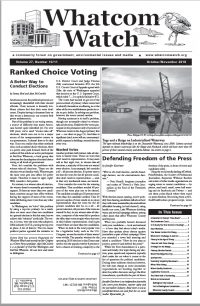by Robert A. Duke
Is it the biologically unique you your doctor is treating and counseling during an office visit? Yes, to the extent your history, gender and age matter. Mainly, though, she is providing preventive care recommended by the U.S. Preventive Services Task Force, (USPSTF), based on an actuarially meaningful American surrogate.
Never heard of the task force? I hadn’t either until after age 70 when I began to question whether tests, procedures and advice from doctors were still appropriate for me. When a doctor sounded worried over a lab result, I’d remind him I was age 70, suggesting I was now too old for it to matter any longer. Sometimes the doctor agreed, other times she might say emphatically she would keep doing the lab test until I turned 75. Either way, I sensed the doctor was relying on some authoritative source for her pronouncements and one day asked her where she got these “parameters” for her decisions about my care.
Established in 1984, the USPSTF (uspreventiveservicestaskforce.org) is an independent, volunteer panel of national experts in prevention and evidence-based medicine. The task force works to improve the health of all Americans by making evidence-based recommendations about clinical preventive services, such as screenings, counseling services and preventive medications. The panel is made up of 16 volunteer members who are nationally recognized experts in behavioral health, family medicine, geriatrics, internal medicine, pediatrics, obstetrics and gynecology, and nursing.
Recommendations are assigned a letter grade (an A, B, C or D) based on the strength of the evidence and the balance of benefits and harms of a preventive service. The recommendations apply only to people who have no signs or symptoms of the specific disease or condition under evaluation, and the recommendations address only services offered in the primary care setting.
Consumer and Patient Friendly
Wonder of wonders, such an intensely medical site is invitingly consumer friendly. It solicits consumers’ use with a whole section titled “Consumer.” And there is a lot here for consumers, but it quickly evolves into technical details and “medical speak” that demands more-than-average healthcare knowledge. If you’re a reader who’s already self-schooled in some disease or treatment, you will be able to advance further into the data. Even the information labeled “Medical” is accessible for the determined reader. Any reader would find task force material much richer and rewarding than the typical internet healthcare websites that we computer-literate users have come to know.
Beyond the extensive narratives of disease, treatment and care at the primary care level, USPSTF offers several tantalizing and revealing features, such as the succinct role of age, identifying the harm caused by treatment, and challenges to currently approved procedures and treatments.
I often sought such information and found it was like discovering a new land with unlimited possibilities and resources for pioneering patients and caregivers determined to participate in and contribute to decisions affecting their own care or that of a loved one.
An Example of Harmful Consequences
It came as a revelation to me to find a highly qualified source of medical information that candidly presents the harm that can result from medical treatment. (All medical treatments, including medications, have potentially adverse consequences and side effects, along with their benefits. Rarely are the two explicitly correlated as they are by USPSTF.) Here is a simple example directly from USPSTF Final Recommendation: Colorectal Cancer Screening.
“The harms of stool-based testing primarily result from adverse events associated with follow-up colonoscopy of positive findings.”
To paraphrase: If you elected to monitor your colorectal health by testing stool samples for occult blood, the potential harm you may encounter from this procedure may come from the mandatory colonoscopy, which will be dictated by a positive finding of blood in your stool. The principal risk of a colonoscopy is perforation of the colon.
The USPSTF table illustrates the role age plays in more aggressive colorectal cancer screening. Colorectal Cancer Screening
An Example of Age-Dictated Screening
A lot of medical care and treatment is based on age, from infancy to end-of-life. Studying USPSTF recommendations makes this abundantly clear. Across a patient’s lifetime, priorities rise and fall until very late in life when treatment for many diseases and conditions is unlikely to improve longevity or quality of life. At a certain stage in life, it-is-what-it-is and nothing can be done to change it, and comfort is the only option.
The USPSTF table on the left illustrates the role age plays in more aggressive colorectal cancer screening.
Examples of Current Practices Under Review
A critical task of the task force is to review existing medical recommendations to determine whether they continue to meet contemporary standards and fulfill the evolving requirements for measuring the quality of primary care. For example, in 1998, measurement of my blood pressure was described as high-normal. This did not alarm me since it was “normal.” But in 2003, the definition of high blood pressure was changed and my blood pressure was now simply described as “high,” and I was immediately diagnosed with hypertension and was prescribed medication. Hypertension was again redefined in 2017 at a yet lower level.
Topics Presently Under Review:
• Does screening for high blood pressure in adults improve health outcomes?
• What is the accuracy of office-based blood pressure measurement during a single encounter as initial screening for high blood pressure compared with the reference standard ambulatory blood pressure measurement?
• What screening protocol characteristics define the best diagnostic accuracy?
• What is the accuracy of confirmatory blood pressure measurement in adults who initially screen positive for high blood pressure compared with the reference standard?
• What confirmation protocol characteristics define the best diagnostic accuracy?
• What are the harms of screening for high blood pressure in adults?
Best Health Care Recommendations
Getting the best health care means making smart decisions about preventive services such as screening tests, counseling services and preventative medicines. These are tests or treatments that your doctor or others provide to prevent illnesses before they cause you symptoms or problems.
USPSTF recommendations not only offer guidance to doctors, nurses and other primary care professionals, but provide patients and their families (consumers) with the most accurate and up-to-date information on ways to prevent illness and improve health and well-being.
Take care of yourselves.
__________________________________
Robert A. Duke is author of “Waking Up Dying: Caregiving When There Is No Tomorrow,” and lives in Bellingham. His email: boshduke@gmail.com.





























